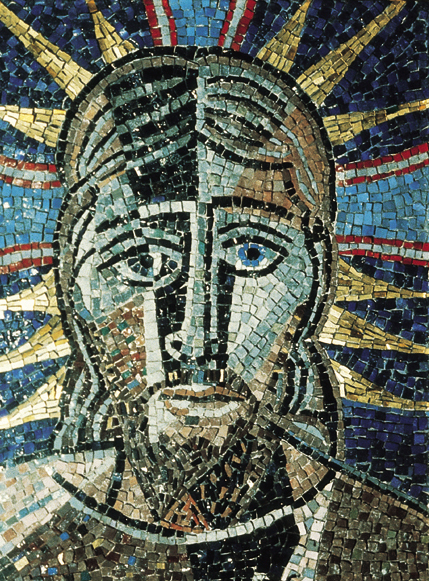Image Details

Boltin Picture Library
A radiant, ghostly Jesus is depicted in this 19-inch-high mosaic—now in the Vatican Museum of Contemporary Christian Art—by the Italian artist Gino Severini (1883–1966).
Several times this century, scholarly views of the life and times of Jesus have shifted abruptly. In The Quest of the Historical Jesus (1906), Albert Schweitzer proposed that New Testament scholarship has only two options: Either Jesus believed that the end of time, the millennial kingdom, was imminent, or the Gospels are completely unreliable as sources of historical information. Until recently, most biblical scholars chose the first option: that of the eschatological Jesus. Now, however, some scholars argue that the Gospels’ apocalyptic statements—such as those in which the phrase “Son of Man” occurs—were not uttered by Jesus at all, but rather attributed to him later by members of the early Church. Jesus, for these scholars, was a teacher, sage and religious reformer, not a fiery apocalyptic prophet.
But author Dale Allison points out that Jesus could have been both a wise teacher and an eschatological prophet. Not all of Jesus’ sayings about the coming Kingdom can be shown to be later insertions; and other elements in the Gospels, such as the parables, strongly suggest that Jesus believed the world was soon to be transformed.
